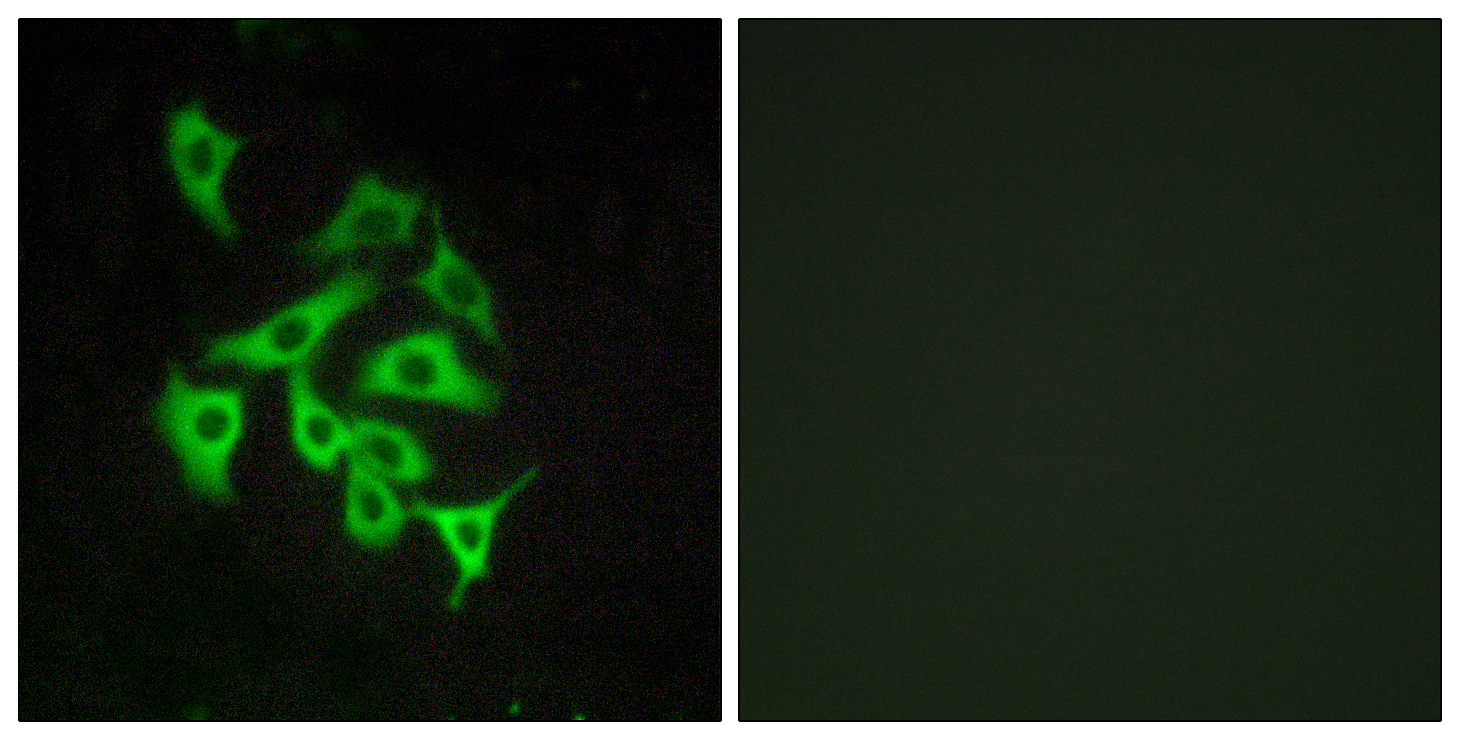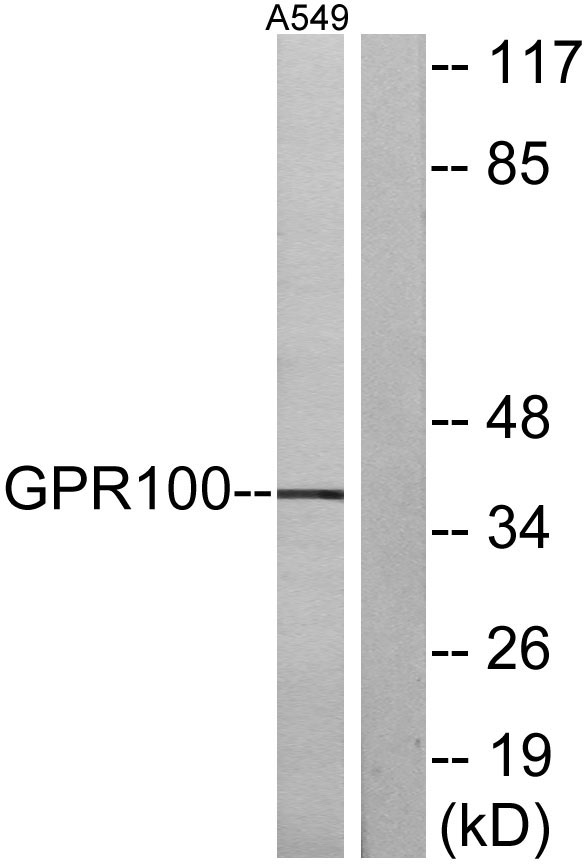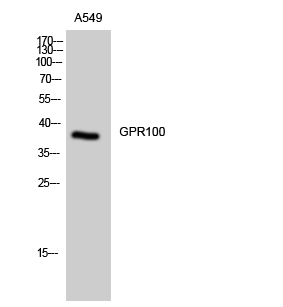产品名称
GPR100 Rabbit Polyclonal Antibody
别名
RXFP4; GPR100; RLN3R2; Relaxin-3 receptor 2; RLN3 receptor 2; G-protein coupled receptor 100; G-protein coupled receptor GPCR142; Insulin-like peptide INSL5 receptor; Relaxin family peptide receptor 4
蛋白名称
Relaxin-3 receptor 2
存储缓冲液
Liquid in PBS containing 50% glycerol, 0.5% BSA and 0.02% New type preservative N.
Human Gene Link
http://www.ncbi.nlm.nih.gov/sites/entrez?db=gene&term=339403
Human Swissprot No.
Q8TDU9
Human Swissprot Link
http://www.uniprot.org/uniprotkb/Q8TDU9/entry
Mouse Swissprot No.
Q7TQP4
Mouse Swissprot Link
http://www.uniprot.org/uniprot/Q7TQP4
免疫原
The antiserum was produced against synthesized peptide derived from human GPR100. AA range:321-370
特异性
GPR100 Polyclonal Antibody detects endogenous levels of GPR100 protein.
宿主
Polyclonal, Rabbit,IgG
背景介绍
GPR100 is a member of the rhodopsin family of G protein-coupled receptors (GPRs) (Fredriksson et al., 2003 [PubMed 14623098]).[supplied by OMIM, Mar 2008],
组织表达
Expressed in a broader range of tissues including brain, kidney, testis, thymus, placenta, prostate, salivary gland, thyroid and colon.
细胞定位
Cell membrane; Multi-pass membrane protein.
功能
function:Receptor for relaxin-3, as well as bradykinin and kallidin. Binding of the ligand inhibit cAMP accumulation.,similarity:Belongs to the G-protein coupled receptor 1 family.,tissue specificity:Expressed in a broader range of tissues including brain, kidney, testis, thymus, placenta, prostate, salivary gland, thyroid and colon.,
纯化
The antibody was affinity-purified from rabbit antiserum by affinity-chromatography using epitope-specific immunogen.



